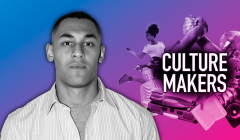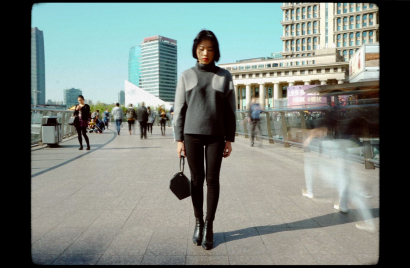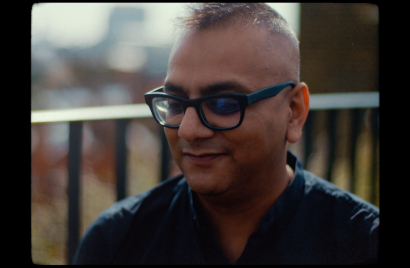
‘Subculture is the most powerful tool we have’
Louis Persent, Co-Founder and Creative Director at Weirdo on the power of embracing the niche

Faisal Ahmed, Director of Innovation and Business Transformation at Sudler London, is behind a new campaign to drive diversity in healthcare advertising, which launches at a vital time for the industry.

There has never been a more urgent time in living memory to communicate health messages to a diverse audience. Yet Sudler London’s Faisal Ahmed has been campaigning for diversity in healthcare advertising long before the global coronavirus pandemic knocked us all collectively off our tracks.
Ahmed’s team at Sudler London, alongside Ogilvy Health UK, already works on COVID-19 projects with brands including the London School of Hygiene and Tropical Medicine and he is clear on the urgency of ensuring health messages reach a wider and diverse audience: “What we need now is simple messaging that resonates with a wide audience.”
Yet while this sounds like a simple goal, in the era of dark social and fake news, it is anything but easy. “We need to bust the myths and the misinformation; what we need right now is experts.” So, how do you ensure that the experts are being heard? Ahmed points to social media brands such as Twitter placing the official guidance at the top of the news feed under the #COVID19 hashtag as one example of a platform stepping up. Yet more needs to be done. “You could create a Twitter chatbot to pick up the false news and replace it with the right message,” he explains.
We need a diverse workforce to address a global pandemic.
Faisal Ahmed
“If you walk into a hospital or a doctor’s surgery, the whole community is diverse. But when you look at the advertising industry it is not,” explains Ahmed. It is a disconnect that Ahmed’s latest campaign, ‘Diversity’ directed by Richard Paris Wilson, is seeking to tackle. Not just because it is the right thing to do but because it is essential for an industry which must meet the needs of and communicate with the entire population.
“There are nuances that the industry is missing,” Ahmed says, pointing to the fact that there are not enough diverse leaflets and content to reach a wide audience. Then there is the thorny issue of ‘adherence’, the biggest challenge for healthcare marketing, which, put simply is ensuring that patients correctly complete the course of medicine they have been prescribed.
The issue is understanding the cultural nuances and ensuring that all patients, regardless of background, are clear on the benefits of any given medication.
This is an issue that Ahmed cares passionately about and clearly one that has galvanised the healthcare marketing industry. “We are a moral industry. When you look at a lot of people in our industry, it is clear they are in it for the patients,” he explains.
This cross-industry support is evident in the agency holding groups supporting the campaign, including WPP and Havas Lynx. Alongside the film’s Co-Creator Richard Paris Wilson, the work has been supported by key advocates Tom Richards, Chief Creative Officer at Havas Lynx, Tara Page, MD of Sudler London and Shaheed Peera, Executive Creative Director at Publicis LifeBrands.
Ahmed also believes the industry still has a significant job to do in ensuring that a diverse range of people see that careers in the creative industries can be for them. “As an industry we need to ensure we get out to schools and educators more, as well as working with student bodies to be more present at careers fairs,” he adds.
Tackling the issues surrounding diversity in advertising and product design is not just the right thing to do; it drives business success. To coincide with Disabled Access Day 2019, IKEA launched its ThisAbles range of add on products that aim to make daily life easier for disabled people. These included super-sized zips and bumpers for bookshelves. “IKEA’s work still tops the industry”, says Ahmed, who adds that it is “sad that it has taken awards to make disability count.”
He also points to the example of a group of students who created the Embrace Infant Warmer, which was developed to keep premature babies born in remote villages alive. The design team focused completely on the women who would use the product, travelling to India where one of the village mothers told them that, in their community, they believed Western medicines were really powerful, and often too strong. A belief which translated to having half the amount of any given prescribed medicine for example. In light of this, instead of having a temperature on the product, the team instead decided to use a mechanism which simply stated ‘OK when the warmer was at the correct temperature. Design with diversity at its core.
“One thing I have been pushing for, for years is disability in design so are we making campaigns, websites and apps based on people’s disabilities,” Ahmed explains. This extends to ensuring a website is W3C compliant and considering, for example, how to design for people with dyslexia.
Cultural differences can be overcome by making messages simple.
Faisal Ahmed
So, as Ahmed launches the campaign to tackle diversity in healthcare advertising amidst a global pandemic, what is next for healthcare advertising? “The key is making the work relevant and talking to the right people. The fact is that across the globe more people are going to be considering their health more and that will have a huge impact,” he explains.
Ensuring healthcare messaging is clear and concise has never been more vital. “Cultural differences can be overcome by making messages simple,” he explains. Noting that in Pakistan people believed that gargling with salt water would prevent the spread of COVID-19. Then there is the challenge of getting messages across to doctors in a limited time frame.
At the same time, healthcare marketers understand that people have very different approaches to the threat posed by COVID-19. While some people are actively seeking out advice about preventing the spread of the virus, the economic impact of the crisis has remained a priority for others.
Even if your economics trump your ethics, the business case for diversity has now been made. This film is testament to the passion Ahmed has for changing the ratio in an industry which has long struggled to create the space for a diverse workforce to thrive. By creating a campaign which gives space for these diverse voices, the film demonstrates the power of diversity in creativity.
When we began our conversations about this film, clearly a labour of love for Ahmed, we were in a different time and different space, but this work is perhaps all the more vital now we are on lockdown. “Everyone in the industry has more time in lockdown, so now we should be making time to think about what we can do to help,” he adds.
For the healthcare sector this urgency is palpable. As Ahmed explains, “We now need a vaccine to combat COVID-19. We need a diverse workforce to address a global pandemic.”


Stills from 'Diversity' directed by Richard Paris Wilson
Looks like you need to create a Creativebrief account to perform this action.
Create account Sign inLooks like you need to create a Creativebrief account to perform this action.
Create account Sign in